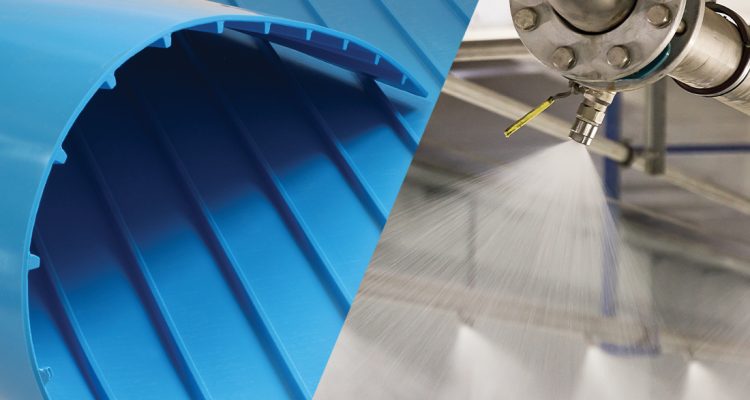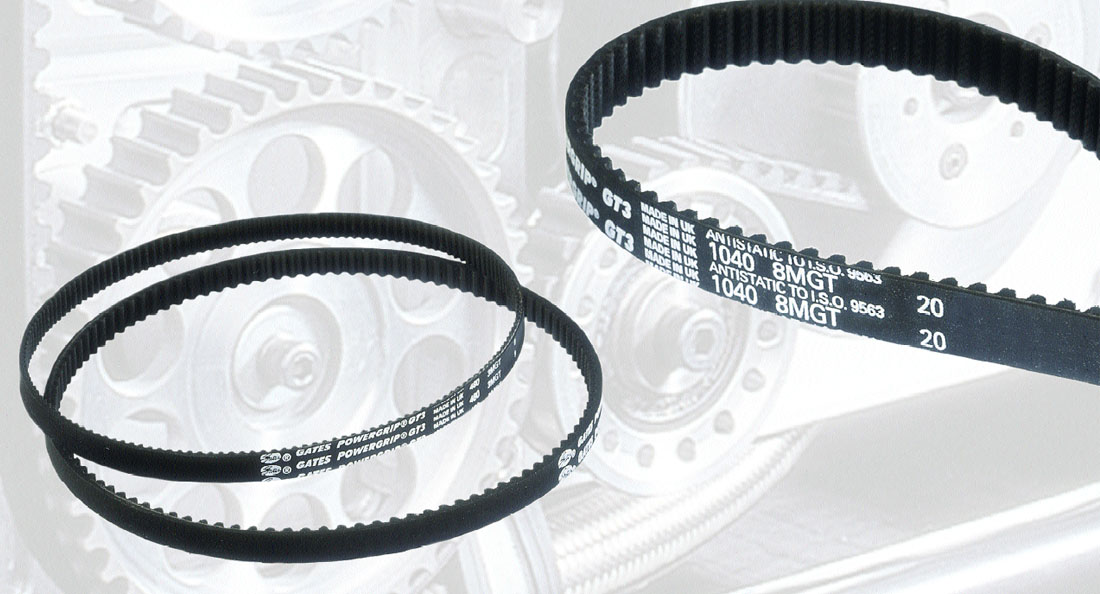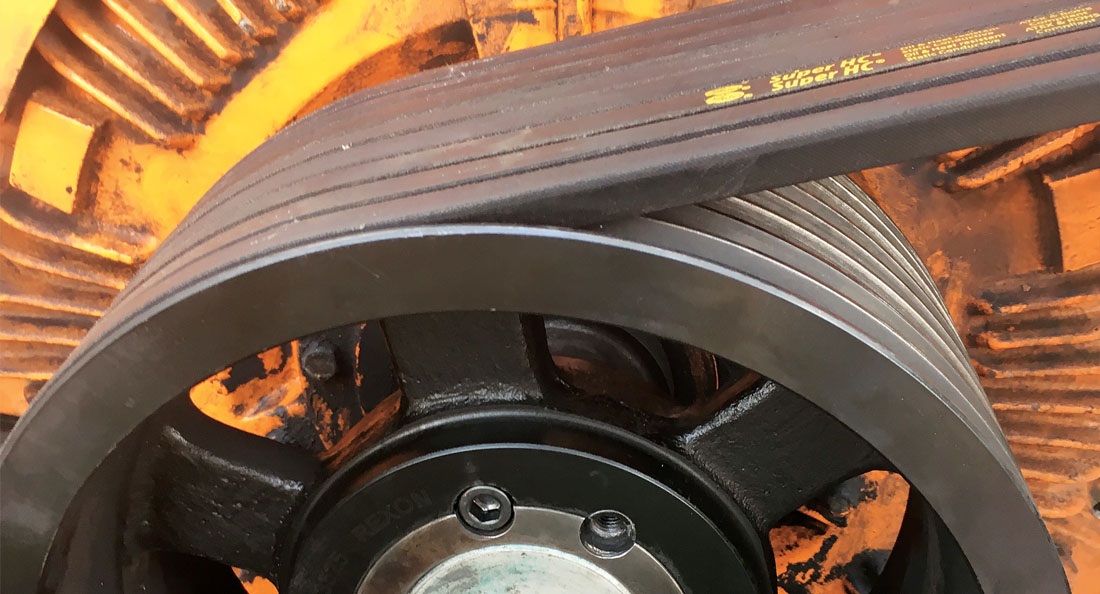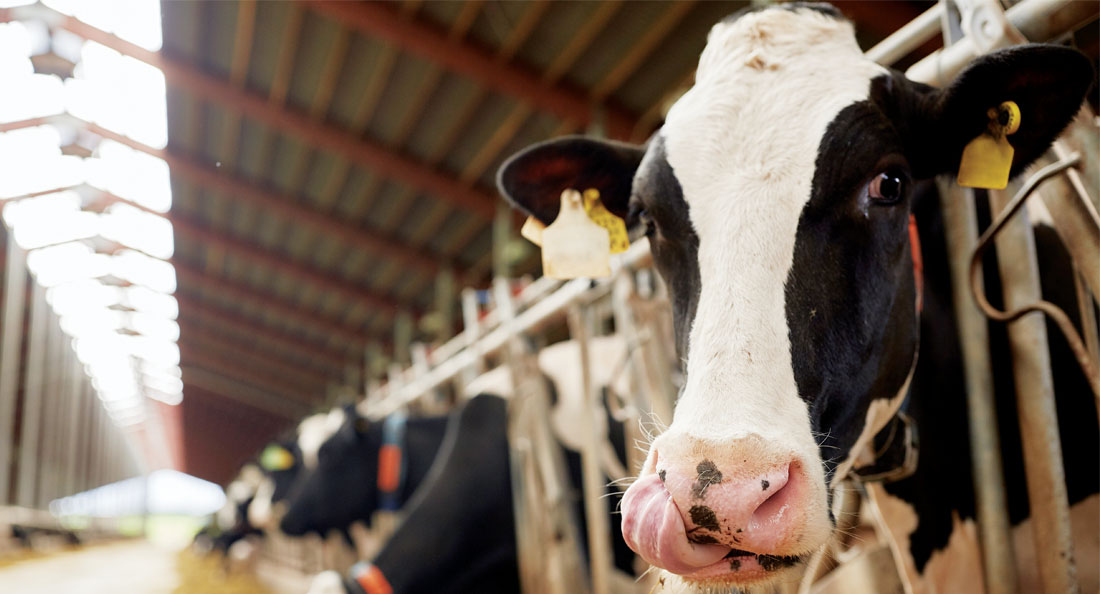Gates® has carved a legacy in Australian manufacturing by offering application-specific belt solutions and pushing the boundaries of material science. Optimising belt designs for a range of intense durability requirements takes meticulous attention to surface texture, degree of stretch, coating and application methods.
As a diamond supply partner with Motion Australia, Gates is introducing the latest approaches across a broad spectrum of industrial fittings including automotive, hydraulic, belt, coupling and sprocket products. Wherever OEM projects are desiring of upgrades or improved design components, Gates is aiming to deliver long-term and reliable answers.
Where belts are used in the food processing sector, Gates offers major design benefits for frequent wash down and chemical cleaning procedures. Water usage is a primary concern in the industry, as downtime spent on disassembling and soaking parts to meet hygiene protocols. The repeated hosing pressure also often leads to accelerated corrosion and shortening of belt lifespan.
The POSICLEAN™ thermoplastic polyurethane belt offers immediate reduction in operating costs, by taking into account numerous factors of efficiency. Leon Stefanec, Victorian State Sales Manager at Motion Australia, explains that the implementation of this belting solution will ultimately lead to cost saving, also having have a direct impact on the environmental footprint of each processing plant.
“We at Motion Australia would like to introduce this exciting new product to Australia’s poultry, pork and seafood industries. Typically, this product would replace plastic modular belting, commonly seen in these areas. This has the potential to provide huge water consumption benefits, translating to important environmental and dollar cost savings.”
Gates has already seen meat processing customers save thousands of dollars in operating costs, as a direct result of switching to the POLYCLEAN™ PC20. In a recent case study, they found that the frequent disassembly and reassembly of plastic belting segments contributed to damage and more frequent replacement. This poses an ongoing health and safety risk as well, because damaged plastic can break off and contaminate the meat – sometimes without detection. This sort of risk can lead to costly product recall, and requires tiresome manual monitoring of part durability.
“We do a lot of work with chicken processing plants, and bear witness to many of the day-to-day challenges on the ground level,” says Leon. “Because of the tough wash down procedures that need to happen regularly, generic belts used on conveyors do not often reach full life expectancy. I believe these TPU belts from Gates could be a real problem solver for our customers here in Australia.”
The POSICLEAN™ line is much simpler to keep sanitary, incorporating sealed tension members as well as drive teeth across the full belt width. The most attractive feature of this product is that it is ‘clean in place,’ (CIP) minimising the time spent removing apparatus to conduct daily washdown. They are also considerably more resistant to stretch, which is a common issue with rubber belts in long length applications.
Created as a ‘like for like’ replacement solution, the POSICLEAN™ is compatible with most pre-existing one and two inch conveyor systems. Its smooth surface prevents micro pockets for bacteria to grow, and needs only a simple wipe-over technique for thorough sanitation. The sealed edges successfully prevent ingress of microbes, and optional side walls or flights are available.
When observed in a meat processing plant during the Gates case study, the POSICLEAN™ PC20 led to a reduced water consumption by 172,000 gallons per year, which was nearly 50% of their prior usage. This lower water rate directly correlated to an annual plant cost saving of $20,000, and a consequent return on investment in less than two days.
The site’s daily cleaning time was also reduced by 30 minutes, inflating production value by $4.5 million per year. Additional reported benefits included quieter run volume, significantly lighter weight than traditional plastic modular belting, and durability under high load application. Their perforated dewatering configuration also facilitates rapid water drainage – ideal for preventing residue from bottling and cleaning.
“The results being seen here are remarkable,” reflects Leon. “Water management is a large part of the manufacturing industry’s movement towards more sustainable operations. If we can implement these changes here in Australia, it would mean significant benefits for the environmental impacts of food processing.”
“Not only are these belts high-grade and long wearing,” he continues, “but they incorporate unique and innovative design that makes the day to day tasks of plant management easier. It means less downtime, more product output and much stronger risk mitigation in terms of safety.”
All Gates food grade conveyor belts are FDA approved, EU complaint and USDA accepted, ensuring their safe and efficient utilisation across various food handling settings. Illnesses that are carried in perishable goods pose a threat to consumers, so opting for prevention methods such as hygienic belting products demonstrates responsible business practice.
Alongside the POSICLEAN™, Gates offers a FLATCLEAN™ alternative without drive tooth. There are also self-tracking options (CENTRECLEAN™) and dewatering belt options available. Additionally, customers can opt in for small amounts of metal detectable additive, for further risk management concerning accidental contamination.
POSICLEAN™ is currently available through Motion Australia as a custom order solution, and Leon predicts a positive response as the range continues rolling out in Australian sectors. “Lead time for the supply of these TPU belts would be similar to locally assembled or imported plastic modular belts. Motion Australia are excited to offer this exciting new product from Gates as a project-integrated solution.”
Why Fred loves Gates POSICLEAN Belts
• 30% lighter
• 35% less water consumption
• 43% less surface area
• No crevices to harbour contaminants
• No risk of contamination from broken pins or hinges




